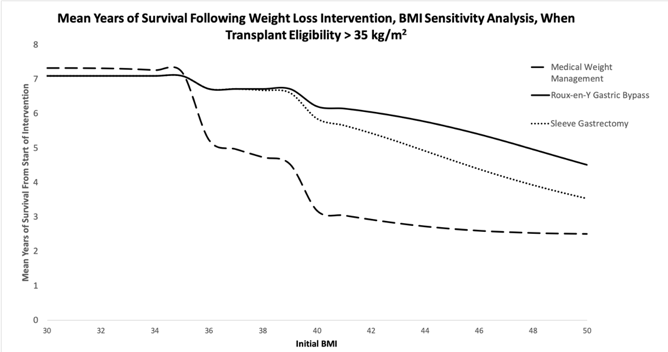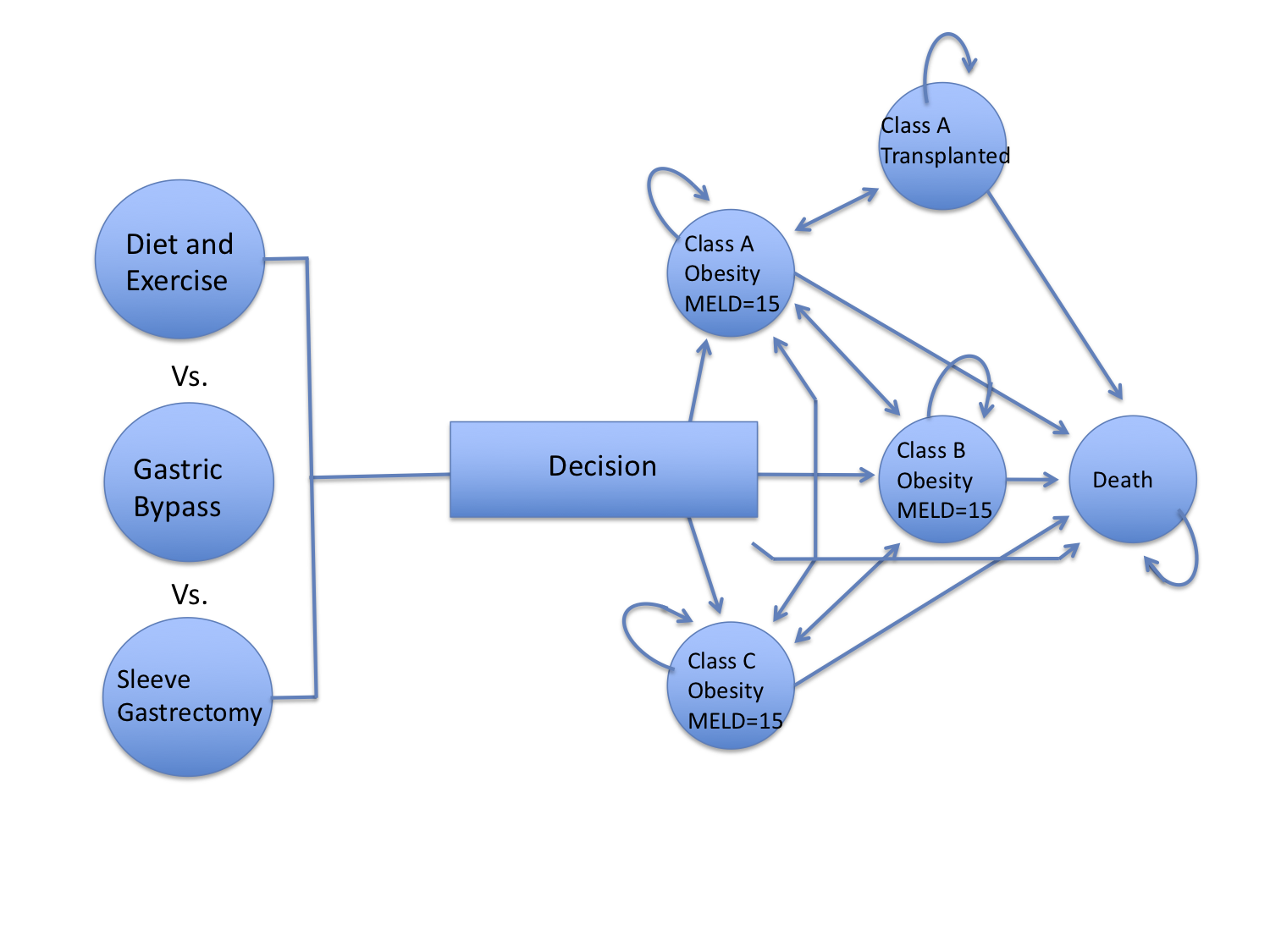Sleeve Gastrectomy Compared with Gastric Bypass for Morbidly Obese Liver Transplant Candidates: A Decision Analysis
R. A. Choudhury1, D. Yoeli1, G. Hoeltzel2, H. B. Moore1, H. Yaffe1, K. R. Dumon3, N. N. Williams3, P. L. Abt4, K. D. Conzen1, J. J. Pomposelli1, E. A. Pomfret1, T. L. Nydam1
1Department of Surgery- Division of Transplantation Surgery, University of Colorado Hospital, Aurora, CO, 2Thomas Jefferson University Hospital, Philadelphia, PA, 3Department of Surgery, University of Pennsylvania Hospital, Philadelphia, PA, 4Department of Surgery- Division of Transplantation Surgery, University of Pennsylvania Hospital, Philadelphia, PA
Meeting: 2020 American Transplant Congress
Abstract number: A-105
Keywords: Liver transplantation, Metabolic disease, Obesity, Prediction models
Session Information
Session Name: Poster Session A: Surgical Issues (Open, Minimally Invasive):All Organs
Session Type: Poster Session
Date: Saturday, May 30, 2020
Session Time: 3:15pm-4:00pm
 Presentation Time: 3:30pm-4:00pm
Presentation Time: 3:30pm-4:00pm
Location: Virtual
*Purpose: The use of bariatric surgery has increased for morbidly obese liver transplant candidates for whom placement on the waitlist is often restricted until they achieve a certain BMI threshold. Effective weight loss for this population improves access to life saving liver transplantation. However, it is unclear whether sleeve gastrectomy (SG) vs. Roux-en-Y gastric bypass (RYGB) is a more effective therapy for these patients.
*Methods: A decision analytic Markov state transition model was created to simulate the life of morbidly obese patients with MELD=15 who were deemed ineligible to be waitlisted for liver transplantation unless they achieved a BMI less than 35 kg/m2. Life expectancy following weight management (MWM), RYGB and SG were estimated. Base case patients were defined as having a pre-intervention BMI of 40 kg/m2. Sensitivity analysis of initial BMI was performed. Markov parameters were extracted from literature review.
*Results: RYGB improved survival compared to SG and MWM. RYGB patients had higher rates of transplantation, leading to improved mean long term survival. Base case patients who underwent RYGB gained 0.4 additional years of life compared to patient’s who underwent SG and 3.1 additional years of life compared to MWM.
*Conclusions: RYGB improves access to liver transplantation and thereby increases long term survival compared to SG and MWM. The use of SG may be incongruent with the goal of improving access to liver transplantation for morbidly obese patients.
To cite this abstract in AMA style:
Choudhury RA, Yoeli D, Hoeltzel G, Moore HB, Yaffe H, Dumon KR, Williams NN, Abt PL, Conzen KD, Pomposelli JJ, Pomfret EA, Nydam TL. Sleeve Gastrectomy Compared with Gastric Bypass for Morbidly Obese Liver Transplant Candidates: A Decision Analysis [abstract]. Am J Transplant. 2020; 20 (suppl 3). https://atcmeetingabstracts.com/abstract/sleeve-gastrectomy-compared-with-gastric-bypass-for-morbidly-obese-liver-transplant-candidates-a-decision-analysis/. Accessed March 3, 2026.« Back to 2020 American Transplant Congress


